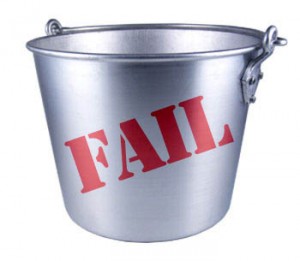Junk Science Week in the Financial Post reports that enviro science wannabes who used buckets of air in their effort to ban fracking in Colorado were also behind the New York campaign that recently succeeded.
New York Gov. Cuomo based his decision on a “research paper” authored by fractivists who used “buckets lined with plastic bags to collect bogus air samples and generate negative headlines for the oil and gas industry,” the Post reported.
One of those authors, (Global Community Monitor’s) executive director, has even admitted the so-called bucket brigade is “not a scientific experiment.”
The group’s methods were criticized years ago by public health officials in the state of Colorado for their “serious technical deficiencies,” but the authors used bucket air samples for their paper anyway. Other authors worked for oil and gas opposition groups or had individually lobbied against shale gas development in New York. But instead of disclosing their campaigning and lobbying against the energy sector, most of these authors innocuously described their employers as “organizations whose mission is to reduce exposure to toxic chemicals.”
Ironically, CU Professor Roger Pielke Jr., who has been targeted by a congressional Democratic leader in a witch hunt against scientists that disagree with the political party, was cited in the article as calling for more scrutiny of New York’s decision.
The bucket brigade made an appearance in Erie during 2012, and was described by the Daily Camera as “a small group of anti-drilling advocates” who were the brainchild of a California-based “environmental justice” group.
We’re not sure what is meant by “environmental justice,” but suspect that’s what happens when sharknados strike back against global warming.
More from the Daily Camera:
The organization partnered with local anti-fracking activist group Erie Rising to make available four of the 18-quart containers, equipped with nozzles and valves, and lined with 10-liter bags that allow users with relative ease to grab samples of air from wherever they want.
Air buckets and baggies, whodathunk?
We can suggest a more appropriate liquid and solid matter to fill those buckets, and it would be just as scientifically accurate.



What's a little junk science to counter the literal geyser of junk science, and junk law, that claims the dirty and dangerous practice of mining for oil and gas in the middle of communities and neighborhoods is safe?